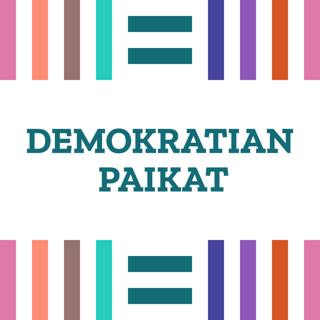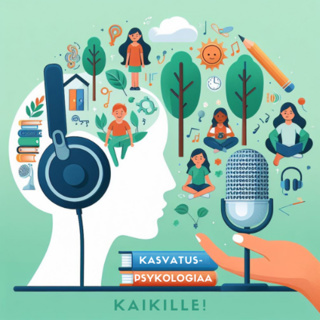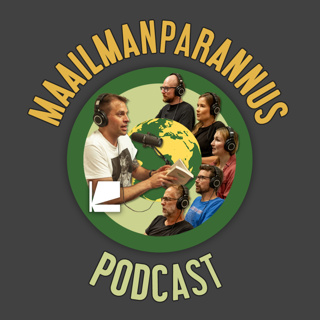
Anne Kim, "Poverty for Profit: How Corporations Get Rich off America’s Poor" (The New Press, 2024)
Poverty is big business in America. The federal government spends about $900 billion a year on programs that directly or disproportionately impact poor Americans, including antipoverty programs such as the earned income tax credit, Medicaid, and affordable housing vouchers and subsidies. States and local governments spend tens of billions more. Ironically, these enormous sums fuel the “corporate poverty complex,” a vast web of hidden industries and entrenched private-sector interests that profit from the bureaucracies regulating the lives of the poor. From bail bondsmen to dialysis providers to towing companies, their business models depend on exploiting low-income Americans, and their political influence ensures a thriving set of industries where everyone profits except the poor, while U.S. taxpayers foot the bill. In Poverty for Profit: How Corporations Get Rich off America’s Poor (The New Press, 2024), veteran journalist Anne Kim investigates the multiple industries that infiltrate almost every aspect of the lives of the poor—health care, housing, criminal justice, and nutrition. She explains how these businesses are aided by public policies such as the wholesale privatization of government services and the political influence these industries wield over lawmakers and regulators. Supported by original investigative reporting on the lesser-known players profiting from the antipoverty industry, Poverty for Profit adds a crucial dimension to our understanding of how structural inequality and structural racism function today. Learn more about your ad choices. Visit megaphone.fm/adchoices Support our show by becoming a premium member! https://newbooksnetwork.supportingcast.fm/critical-theory
30 Touko 202428min

Sa’ed Atshan, "Queer Palestine and the Empire of Critique" (Stanford UP, 2020)
In Queer Palestine and the Empire of Critique (Stanford University Press, 2020) anthropologist and activist Sa’ed Atshan explores the Palestinian LGBTQ movement and offers a window into the diverse community living both in historic Palestine and in diaspora. His timely and urgent account contends that the movement has been subjected to an “empire of critique,” which has inhibited its growth and undermines the fight against homophobia in the region and beyond. On the one hand, explains Atshan, queer Palestinians must contend with the harsh realities of patriarchal nationalism, homophobia and heteronormativity, Israeli occupation, dehumanizing discourses such as ‘pinkwashing,’ and the legacies of western imperialism. At the same time, Atshan argues that critiques against such issues – leveled by academics, journalists, and even queer activists – have contributed to a stifling ideological purism that has put activists on the defensive and alienates some queer Palestinians. Along with a succinct presentation of the immense challenges faced by the LGBTQ-identifying Palestinians, Atshan highlights Palestinian agency, ingenuity, and resilience. He considers how progressive social movements around the world can navigate the often fraught and complex dynamics of intersectional activism, and leaves his readers with a vision of a diverse queer Palestinian movement capable of “radically reimagining possible futures.” Sa’ed Atshan is an assistant professor of Peace and Conflict Studies at Swarthmore College. Joshua Donovan is a History PhD candidate and Core Preceptor at Columbia University. His dissertation examines competing conceptions of identity and subjectivity within the Antiochian Greek Orthodox Christian community in Syria, Lebanon, and the diaspora. Learn more about your ad choices. Visit megaphone.fm/adchoices Support our show by becoming a premium member! https://newbooksnetwork.supportingcast.fm/critical-theory
29 Touko 202455min

The Social Acceptance of Inequality
On this episode of International Horizons, Francesco Duina, Charles A. Dana Professor of Sociology at Bates College and Luca Storti, Associate Professor of Economic Sociology at the University of Turin in Italy and a Research Fellow of the Ralph Bunche Institute for International Studies, discuss the rise of inequalities around the globe and the divergent attitudes towards them since 1970. How can those inequalities be broken down? In this week’s episode, Duina and Storti preview their book-in-progress on The Social Acceptance of Inequality, and they examine four types of logic leading us to accept inequalities in today’s world. Not surprisingly, the concept of meritocracy plays a major role in our thinking about contemporary inequality, although perhaps more so in the United States than in Europe. Learn more about your ad choices. Visit megaphone.fm/adchoices Support our show by becoming a premium member! https://newbooksnetwork.supportingcast.fm/critical-theory
28 Touko 202432min

Tad Delay, "Future of Denial: The Ideologies of Climate Change" (Verso, 2024)
The age of denial is over, we are told. Yet emissions continue to rise while gimmicks, graft, and green-washing distract the public from the climate violence suffered by the vulnerable. Tad DeLay's Future of Denial: The Ideologies of Climate Change (Verso, 2024) draws on the latest climatology, the first shoots of an energy transition, critical theory, Earth’s paleoclimate history, and trends in border violence to answer the most pressing question of our age: Why do we continue to squander the short time we have left? The symptoms suggest society’s inability to adjust is profound. Near Portland, militias incapable of accepting that the world is warming respond to a wildfire by hunting for imaginary left-wing arsonists. Europe erects nets in the Aegean Sea to capture migrants fleeing drought and war. An airline claims to be carbon neutral thanks to bogus cheap offsets. Drone strikes hit people living along the aridity line. Yes, Exxon knew as early as the 1970s, but the fundamental physics of carbon dioxide warming the Earth was already understood before the American Civil War. Will capitalists ever voluntarily walk away from hundreds of trillions of dollars in fossil fuels unless they are forced to do so? And, if not, who will apply the necessary pressure? Louisa Hann attained a PhD in English and American studies from the University of Manchester in 2021, specialising in the political economy of HIV/AIDS theatres. Learn more about your ad choices. Visit megaphone.fm/adchoices Support our show by becoming a premium member! https://newbooksnetwork.supportingcast.fm/critical-theory
26 Touko 20241h 5min

Lamia Karim, "Castoffs of Capital: Work and Love among Garment Workers in Bangladesh" (U Minnesota Press, 2022)
Castoffs of Capital: Work and Love among Garment Workers in Bangladesh (U Minnesota Press, 2022) examines how female garment workers experience their work and personal lives within the stranglehold of global capital. Drawing on fieldwork in Bangladesh, anthropologist Lamia Karim focuses attention onto the lives of older women aged out of factory work, heretofore largely ignored, thereby introducing a new dimension to the understanding of a female-headed workforce that today numbers around four million in Bangladesh. Bringing a feminist labor studies lens, Castoffs of Capital foregrounds these women not only as workers but as mothers, wives, sisters, lovers, friends, and political agents. Focusing on relations among work, gender, and global capital's targeting of poor women to advance its market penetration, Karim shows how women navigate these spaces by adopting new subject formations. She locates these women's aspirations for the "good life" not only in material comforts but also in their longings for love and sexual fulfillment that help them momentarily forget the precarity of their existence under the shadow of capital. Through richly detailed ethnographic studies, this innovative and beautifully written book examines the making and unmaking of these women's wants and desires, loves and tribulations, hopes and despairs, and triumphs and struggles. Learn more about your ad choices. Visit megaphone.fm/adchoices Support our show by becoming a premium member! https://newbooksnetwork.supportingcast.fm/critical-theory
26 Touko 202452min

Premilla Nadasen, "Care: The Highest Stage of Capitalism" (Haymarket Books, 2023)
During the COVID pandemic, billions of dollars in relief aid was sent out to help us ride out the storm, although many people who struggled through it might scratch their heads at such a number, having seen little of it make any concrete impact in their own lives. This discrepancy is indicative of the underlying problem with the contemporary care economy, a series of federal and state programs, healthcare facilities and NGO’s, all trying to bend the needs of those under their care to the mechanisms and incentives laid out by capitalism. The result is a massive apparatus that regularly fails to fulfill its supposed intentions, leaving workers and those in need of help in precarious and often dangerous situations. This apparatus is untangled and explained in clear detail by Premilla Nadasen in her book Care: The Highest Stage of Capitalism (Haymarket Books, 2023). Informed by both her work as a historian and as a political activist, she manages to untangle and explain why the massive apparatus regularly fails to fulfill its purpose. She also outlines offramps, forms of resistance that workers and activists have taken to develop alternative anticapitalist forms of care that might someday allow us to truly flourish together. Premilla Nadasen is a professor of history at Barnard College, Columbia University. She is the co-director of the Barnard Center for Research on Women. She is also the author of Welfare Warriors: The Welfare Rights Movement in the United States and Household Workers Unite: The Untold Story of African American Women Who Built a Movement. Learn more about your ad choices. Visit megaphone.fm/adchoices Support our show by becoming a premium member! https://newbooksnetwork.supportingcast.fm/critical-theory
25 Touko 20241h 10min

Netta Avineri and Patricia Baquedano-López, "An Introduction to Language and Social Justice: What Is, What Has Been, and What Could Be" (Routledge, 2023)
An Introduction to Language and Social Justice: What Is, What Has Been, and What Could Be (Routledge, 2023) is designed to provide the who, what, where, when, why, and how of the intersections of language, inequality, and social justice in North America, using the applied linguistic anthropology (ALA) framework. Written in accessible language and at a level equally legible for advanced undergraduate and graduate students, this text connects theory and practice by sketching out relevant historical background, introducing theoretical and conceptual underpinnings, illustrating with case studies, discussing a wide range of key issues, and explaining research methodologies. Using a general-to-specialized content structure, the expert authors then show readers how to apply these principles and lessons in communities in the real world, to become advocates and change agents in the realm of language and social justice. With an array of useful pedagogical resources and practical tools including discussion questions and activities, reflections and vignettes, further reading and a glossary, along with additional online resources for instructors, this is the essential text for students from multiple perspectives across linguistics, applied linguistics, linguistic anthropology, and beyond. Learn more about your ad choices. Visit megaphone.fm/adchoices Support our show by becoming a premium member! https://newbooksnetwork.supportingcast.fm/critical-theory
25 Touko 202447min

Jeffrey Reiman and Paul Leighton, "The Rich Get Richer and the Poor Get Prison" (Routledge, 2023)
For 40 years, this classic text has taken the issue of economic inequality seriously and asked: Why are our prisons filled with the poor? Why aren't the tools of the criminal justice system being used to protect Americans from predatory business practices and to punish well-off people who cause widespread harm? This new edition continues to engage readers in important exercises of critical thinking: Why has the U.S. relied so heavily on tough crime policies despite evidence of their limited effectiveness, and how much of the decline in crime rates can be attributed to them? Why does the U.S. have such a high crime rate compared to other developed nations, and what could we do about it? Are the morally blameworthy harms of the rich and poor equally translated into criminal laws that protect the public from harms on the streets and harms from the suites? How much class bias is present in the criminal justice system-both when the rich and poor engage in the same act, and when the rich use their leadership of corporations to perpetrate mass victimization? The Rich Get Richer and the Poor Get Prison (Routledge, 2023) shows readers that much of what goes on in the criminal justice system violates citizens' sense of basic fairness. It presents extensive evidence from mainstream data that the criminal justice system does not function in the way it says it does nor in the way that readers believe it should. Learn more about your ad choices. Visit megaphone.fm/adchoices Support our show by becoming a premium member! https://newbooksnetwork.supportingcast.fm/critical-theory
24 Touko 202436min





















